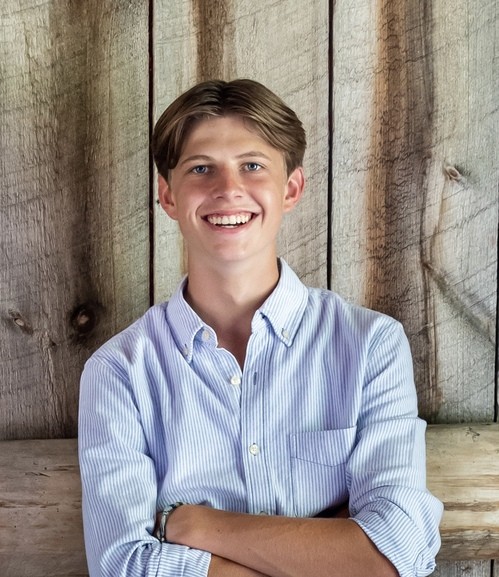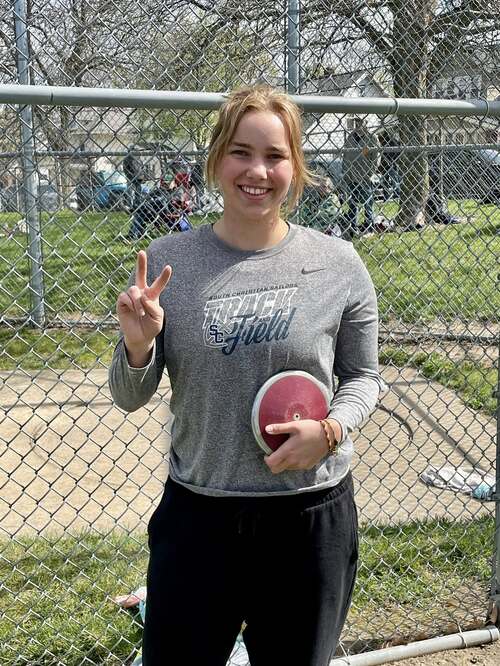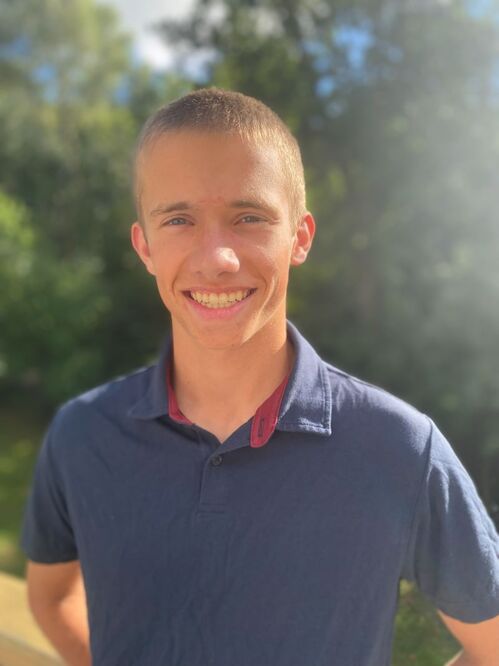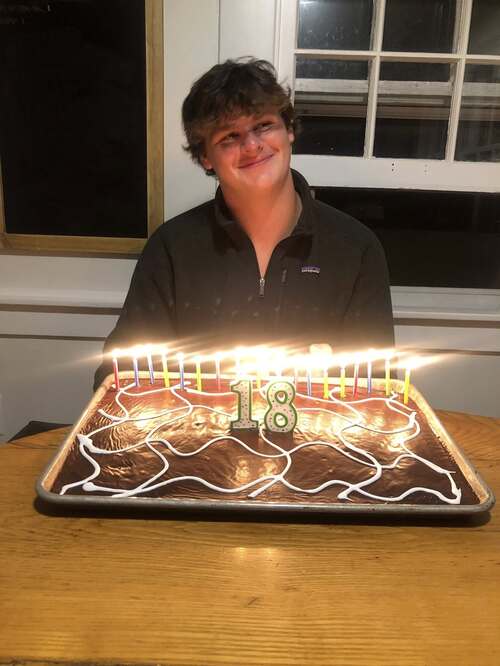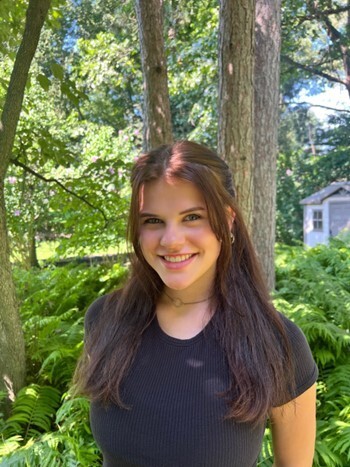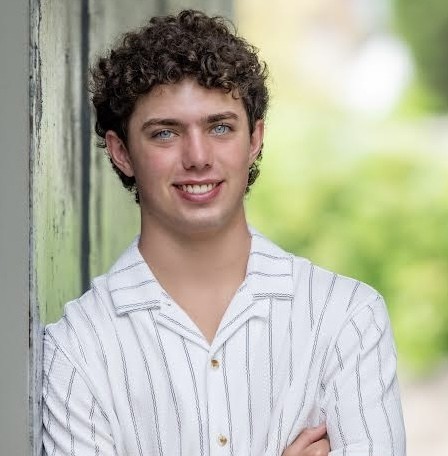LMDJ Summer Serve enables students to serve in urban Grand Rapids each summer.
Thornapple is committed to responding to the needs of the urban community in Grand Rapids. We want to be God’s hands and feet to help. But how does a church located in a suburban setting do that?
That question was asked back in 2000 by members of Thornapple’s Love Mercy Do Justice team. They wanted to help ministries operating in our city and also to give students a chance to serve and be exposed to the realities and needs present in the urban community. Out of that desire came the Glenn Van Noord Short-Term Urban Missions Program, which is now known as LMDJ Summer Serve.

Through this program students serve in short-term placements (over the summer) in Grand Rapids. Local urban ministries receive free help and our students gain invaluable experience. The positions are open to college students and fall juniors and seniors in high school who feel called to serve in the inner city. Students must have their own transportation to get to and from work and each student earns a stipend, the amount of which depends on how many hours are worked (part time is 125 hours and full time is 250 hours, and the hourly rate TBA).
This ministry was formerly called the Glenn VanNoord Short Term Urban Missions Program. You can read about Glenn VanNoord below.
Contact Laurie Guikema if you have questions about this program.
We will begin accepting applications for 2026 LMDJ Summer Serve in March.
This ministry was formerly called the Glenn VanNoord Short Term Urban Missions Program. You can read about Glenn VanNoord below.
Contact Laurie Guikema if you have questions about this program.
We will begin accepting applications for 2026 LMDJ Summer Serve in March.
2025 Reflection papers
- Brandon Baum, Lena Reineking and Drew Shripka served at The Other Way Ministries
- Kate Bruining and Dane Fitzgibbon served at ICCF
- Sam DeJong and Jaden Knapp served at Degage
[Through the program], the Spirit did a work in my heart to grow in compassion and humility, at a time in which they were lacking.
- Colin McLaughlin, 2012 & 2013 program alumni
I always use Degage as an example of urban ministry that truly emphasizes dignity and respect, and I notice myself holding what I believe to be true about Degage as a standard when learning about the work of similar ministries
- Megan Tresh, 2017 program alumni
I was impacted by the way I observed the full-time workers at Degage serving their community with pure compassion.
- Jaden Knapp, 2024 & 2025 program alumni
This program has had a huge impact on me.
I learned so much about the impoverished and unhomed of Grand Rapids and felt my heart long to help our city.
- Megan VerMerris, 2023 & 2024 program alumni
This program helped me understand the importance of community and showed me how much care and effort people put into supporting one another.
- Ronia Koch, 2024 program alumni
Program application
and summer Process
1. Each student first completes the online application.
2. A coordinator will contact students within 2 weeks of receiving an application to set up an interview.
3. The interview will be a time for the coordinators to get to know the student, answer questions, and talk about the various urban ministries where they might want to work.
4. The coordinator will set up a time for the student to meet the supervisor at the urban ministry that the student is interested in.
5. The student meets with the supervisor at the organization they are interested in to be sure that it is a good fit for both the organization and the student.
2. A coordinator will contact students within 2 weeks of receiving an application to set up an interview.
3. The interview will be a time for the coordinators to get to know the student, answer questions, and talk about the various urban ministries where they might want to work.
4. The coordinator will set up a time for the student to meet the supervisor at the urban ministry that the student is interested in.
5. The student meets with the supervisor at the organization they are interested in to be sure that it is a good fit for both the organization and the student.
6. Each student must attend the orientation session with the program coordinators the first Sunday in May. This is required.
7. Once the placement is set and orientation is complete, then the student communicates with the supervisor where they will be working about when they will start, hours they want to work and any weeks that they cannot work.
8. After the student completes all of the required hours, they write a one-page reflection paper describing their experience and what they learned. The paper must be turned in by email to the coordinators.
9. Once the hours are complete and the paper is turned in, then the coordinators request the church accountant to make payment of the stipend to the student.
7. Once the placement is set and orientation is complete, then the student communicates with the supervisor where they will be working about when they will start, hours they want to work and any weeks that they cannot work.
8. After the student completes all of the required hours, they write a one-page reflection paper describing their experience and what they learned. The paper must be turned in by email to the coordinators.
9. Once the hours are complete and the paper is turned in, then the coordinators request the church accountant to make payment of the stipend to the student.
who was glenn van noord?
Glenn Van Noord was a family physician in Grand Rapids and a member of Thornapple Covenant Church from 1993 until 1998. He liked the idea of continuing a legacy of his grandparents, who into their 80s volunteered at Degage Ministries in downtown Grand Rapids. He started a youth group trip each month to Degage, feeling it was important for his and other kids at Thornapple to be exposed to lifestyles and opinions and experiences which were different from their own. He also volunteered at the health clinic at Heartside in Grand Rapids’ homeless community. At age 51, his love for adventure and new experiences brought him to Central America, where he died suddenly of a heart attack. The Glenn Van Noord Short-Term Urban Missions Program was named in his honor in 2000 and combines some of the things that made Glenn who he was: new experiences, serving the poor, love for teenagers and the gospel. In 2025, the name was changed to LMDJ Summer Serve.

